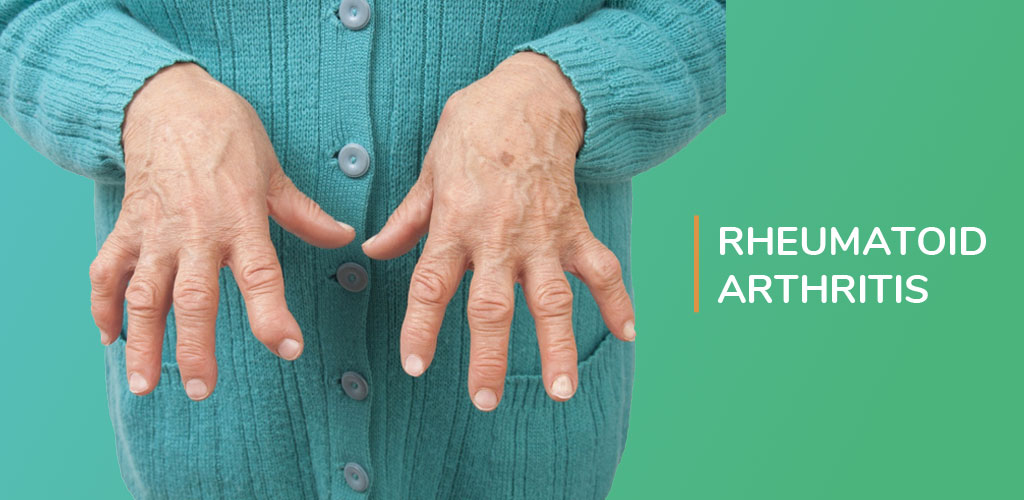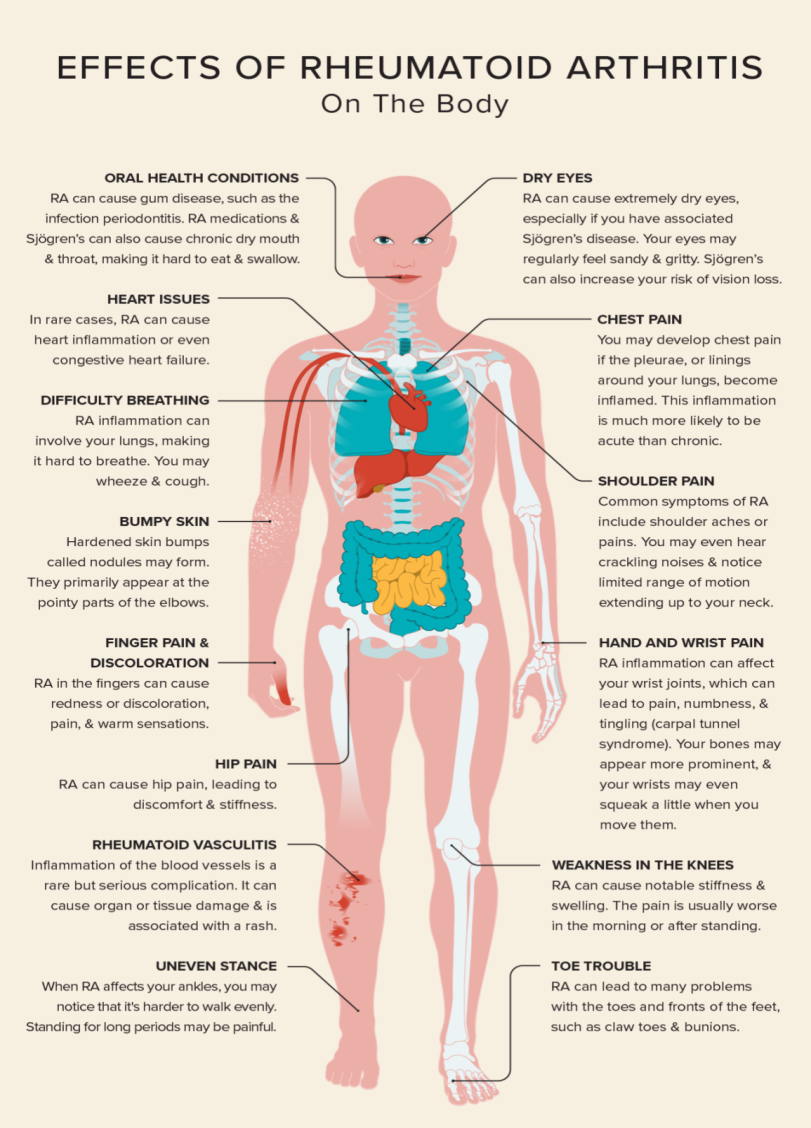Description

Copyright infringement not intended
Picture Courtesy: https://www.physioline.in/rheumatoid-arthritis
Context: The Lancet study investigates the potential of Abatacept, an existing drug used to treat rheumatoid arthritis (RA), to prevent the disease in high-risk individuals with specific antibodies (ACPA).
Details
- The prevention of rheumatoid arthritis (RA) is a complex and ongoing area of research, and while it may not be entirely preventable, early interventions and management strategies can help delay the onset or reduce the severity of the disease.
- The Lancet study suggests the potential for repurposing the drug Abatacept for preventing rheumatoid arthritis in individuals identified as high risk through the detection of autoantibodies associated with RA.
- Abatacept is a biological disease-modifying anti-rheumatic drug (DMARD) that acts as a co-stimulation modulator, influencing the immune response. The study aimed to evaluate the feasibility, efficacy, and acceptability of using Abatacept in high-risk individuals before clinically apparent arthritis develops.

Rheumatoid Arthritis
- Rheumatoid arthritis (RA) is a chronic inflammatory disorder that affects the joints and sometimes other parts of the body.
- It is an autoimmune disease, which means that the immune system mistakenly attacks the body's tissues.
- Rheumatoid arthritis (RA) is more common in women than in men. Women are two to three times more likely to develop RA than men. The reasons for this gender difference are not fully understood, but hormonal factors may play a role.
What causes RA?
- The exact cause of RA is unknown, but researchers believe that it involves a combination of genetic and environmental factors.
- Some people may have certain genes that make them more susceptible to developing RA, but these genes are not enough to cause the disease by themselves. There may be other triggers, such as infections, stress, hormones, or smoking, that activate the immune system and cause inflammation in the joints.
What are the symptoms of RA?
- The main symptom of RA is joint pain, swelling, stiffness, and tenderness.
- The inflammation usually affects the small joints in the hands and feet first, but it can also spread to other joints such as the wrists, knees, ankles, elbows, hips, and shoulders.
- The symptoms tend to be symmetrical, meaning that they affect the same joints on both sides of the body. The joint pain and stiffness are often worse in the morning and after periods of inactivity.
- RA symptoms can vary in severity and frequency. Some people may have mild or occasional symptoms, while others may have severe or constant symptoms. The disease can also go through periods of flare-ups (when the symptoms worsen) and remissions (when the symptoms improve or disappear).

How is RA diagnosed?
- There is no single test that can diagnose RA. The diagnosis is based on a combination of medical history, physical examination, blood tests, and imaging tests.
- RA diagnosis begins with a thorough medical history and physical examination by a healthcare professional. Symptoms such as joint pain, stiffness, and swelling are assessed, along with other relevant aspects of the patient's health.
- Blood tests are commonly used in the diagnosis of RA. Rheumatoid factor (RF) and anti-cyclic citrullinated peptide (anti-CCP) antibodies are checked. RF is present in approximately 80% of people with RA, while anti-CCP is a more specific antibody found in about 70% of RA cases. Elevated levels of erythrocyte sedimentation rate (ESR) and C-reactive protein (CRP), markers of inflammation, are also indicative of RA.
- X-rays may be performed to assess joint damage and erosion caused by RA. However, it's important to note that these may not reveal changes in the early stages of the disease.
- More advanced imaging techniques like ultrasound or magnetic resonance imaging (MRI) may be used to obtain detailed images of the joints. These tests can provide a clearer visualization of inflammation and damage, especially in the early stages, compared to traditional X-rays.
How is RA treated?
- There is no cure for RA, but there are treatments that can help control the symptoms and prevent or slow down joint damage.
- Various medications are used to manage rheumatoid arthritis (RA) symptoms. These include nonsteroidal anti-inflammatory drugs (NSAIDs) like ibuprofen, corticosteroids for rapid relief (with potential side effects), disease-modifying antirheumatic drugs (DMARDs) to slow down disease progression, and biologic agents that target specific inflammatory molecules.
- Physical therapy is an integral part of RA treatment, aiming to improve joint function and mobility. Therapeutic approaches may include exercises, stretching, massage, and heat/cold therapy.
- Occupational therapy helps enhance daily activities and overall quality of life for individuals with RA. It involves the use of assistive devices, adaptive equipment, and ergonomic advice to facilitate better functioning.
- In cases of severe joint damage or deformity unresponsive to other treatments, surgery may be considered. Surgical options include repairing, replacing, or fusing affected joints to alleviate pain and improve joint function.

Conclusion
- Rheumatoid arthritis is a chronic inflammatory disorder affecting joints and other body parts, triggered by a combination of genetic and environmental factors. Symptoms include joint pain, swelling, fatigue, and systemic issues, diagnosed through history, examination, blood tests, and imaging. Treatment focuses on symptom control, joint damage prevention, and may involve medications, therapy, nutrition, and surgery.
Must Read Articles:
ANTI-RHEUMATIC MEDICINES: https://www.iasgyan.in/daily-current-affairs/anti-rheumatic-medicines
|
PRACTICE QUESTION
Q. What is Abatacept primarily used for in medical treatment?
A) High blood pressure control
B) Diabetes management
C) Rheumatoid arthritis treatment
D) Antibiotic therapy
Answer: C
Explanation:
Abatacept is primarily used as a biological disease-modifying anti-rheumatic drug (DMARD) for the treatment of rheumatoid arthritis (Option C).
|

















